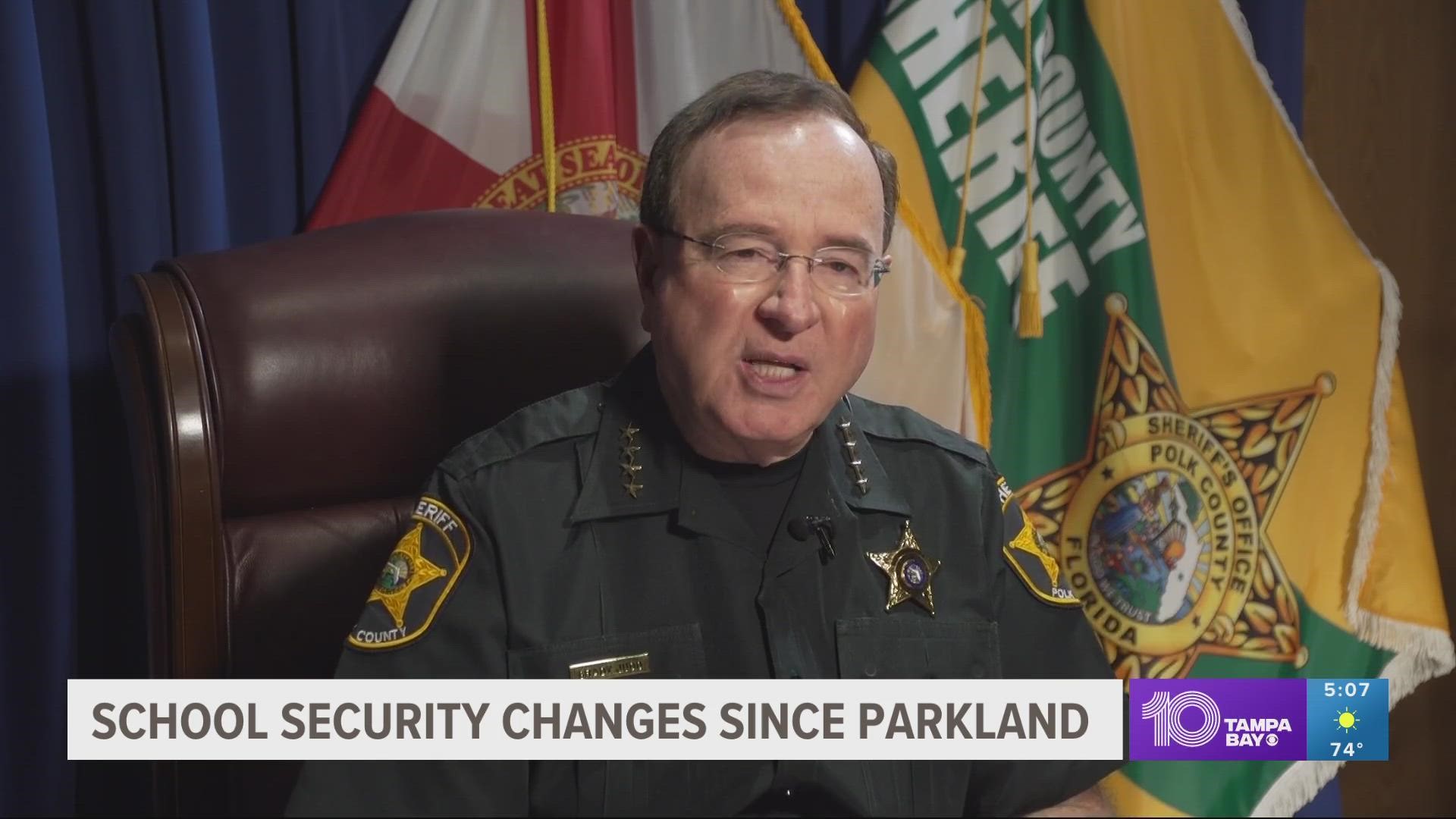FLORIDA, USA — What happened in February 2018 in Parkland forever changed school security in the state of Florida.
Weeks after the shooting, a commission was formed made up of law enforcement officers, educators, lawmakers, and parents of kids who died tasked with figuring out what went wrong and how to prevent future school shootings.
Five years later, there have been many changes to campuses across the state and new laws passed.
One lesson learned that stands out for Hillsborough County Schools Chief of Security John Newman was the need to immediately locate the shooter and alert the entire school.
"They never put the school into a lockdown, what they call a code red. In the mitigation world, you can have a great plan, but if you don't identify and communicate that threat, mitigation doesn't happen," said Newman.
Hillsborough County School's implemented its alert cards two years prior to Alyssa's Law which requires all Florida schools to have some type of panic button in place. In Hillsborough, every staff member wears the card, much like a badge, and with a push of a button, can alert 911 and put a school on lockdown.
Schools added fences, single points of entry and the guardian program which requires an armed guard on every Florida campus.
"If all the other systems and processes fail, someone's got to stop the evil person wanting to kill you and your children," said Sheriff Grady Judd, who sits on the Marjory Stoneman Douglas School Safety Commission.
In more recent years, the commission is looking more closely at mental health.
"That shooter in South Florida got a lot of mental health services. The problem was he separated from school and after that, he was no one's problem," said Newman.
Judd explained since the commission's recommendations, the state does a better job of collaborating with law enforcement, educators, parents, students, mental health professionals and others rather than working in silos.
"If we're not communicating, we're not focusing on the person that has an issue, then that person is allowed to slip through the cracks, we've made a lot of changes on that," said Judd.

